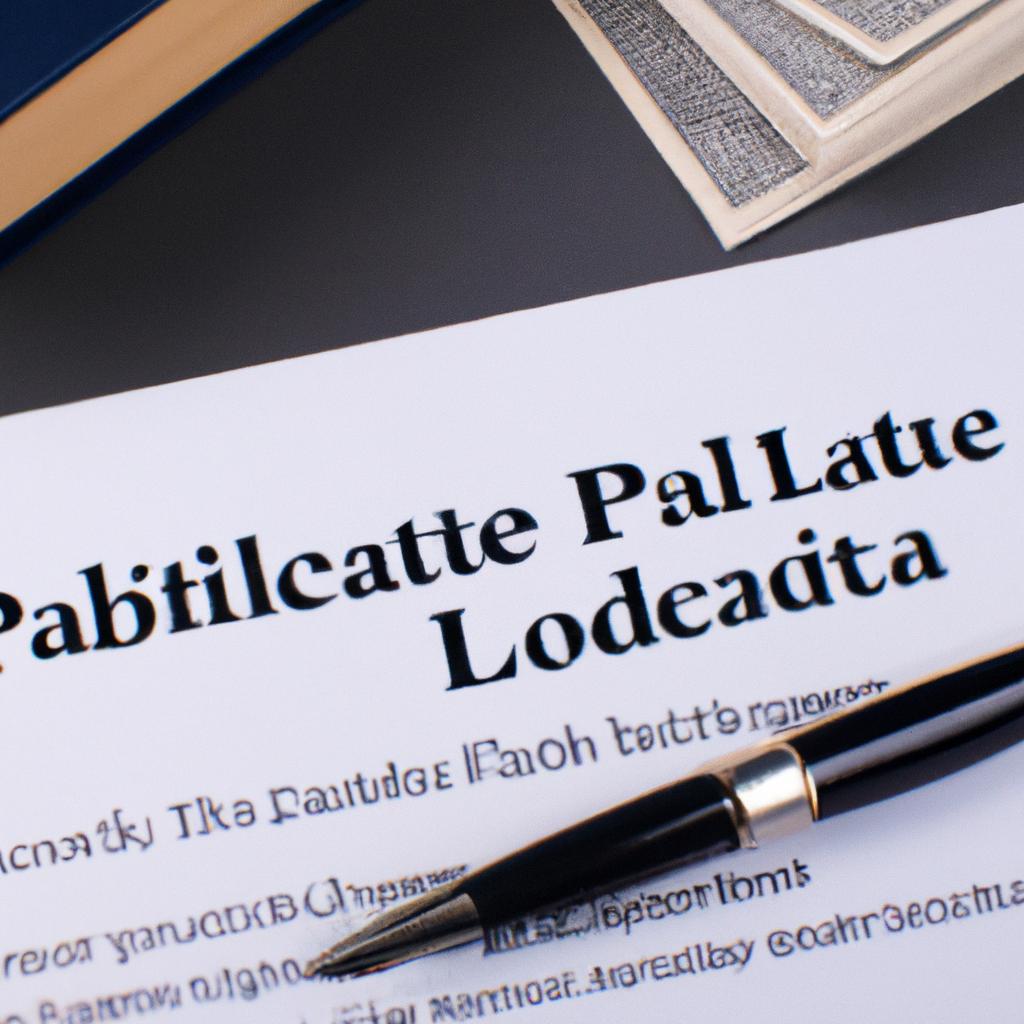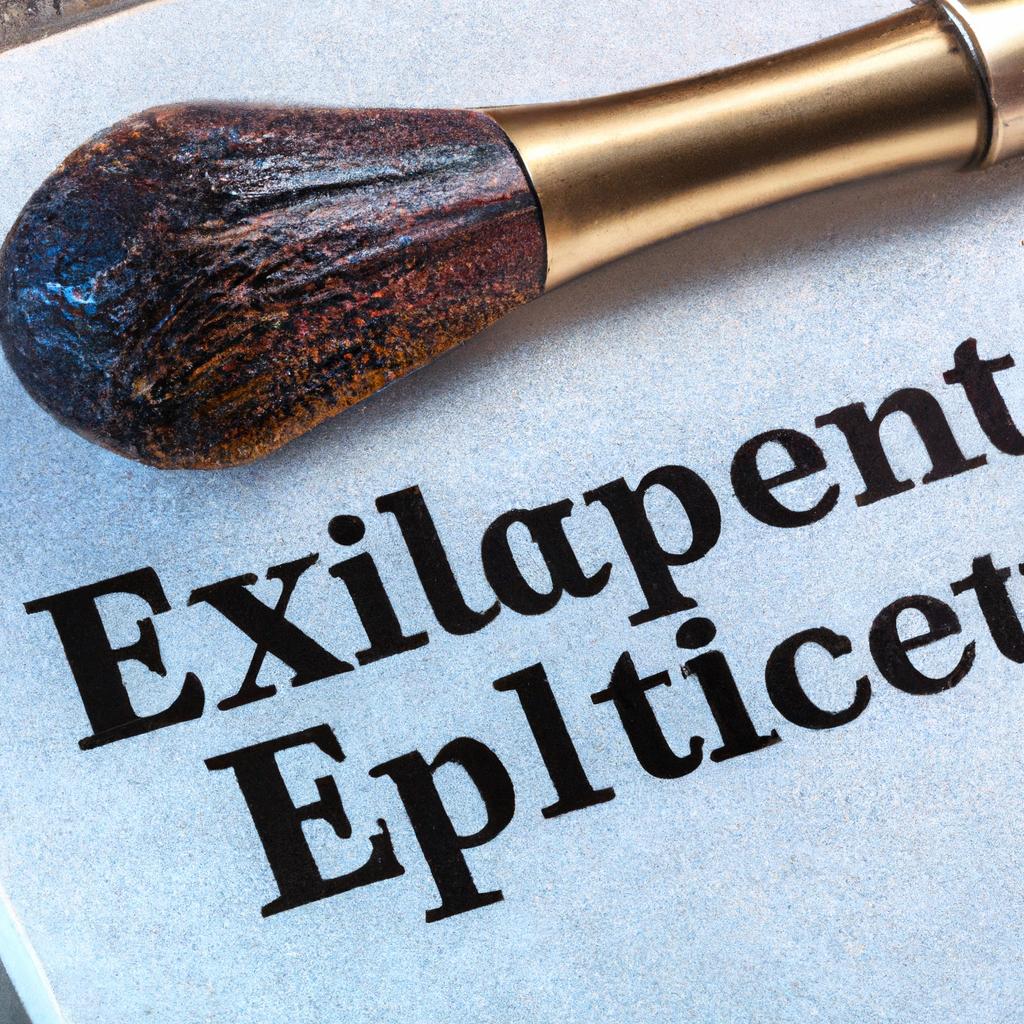In the intricate realm of estate planning, a common query arises: can a will be probated before death? This question delves into the nuances of probate law and the logistics surrounding the execution of testamentary documents. As seasoned practitioners in the field of estate law, the professionals at Morgan Legal Group in New York City are well-equipped to navigate the complexities of probate proceedings. Join us as we unravel the intricacies of pre-mortem probate and shed light on this intriguing aspect of estate administration.
Potential Implications of Probating a Will Before Death
Probating a will before death is a rare occurrence in the legal world, but it is not impossible. There are certain situations where this may be necessary or beneficial. However, it is crucial to understand the potential implications of taking this step, as it can have lasting effects on the estate and the beneficiaries involved.
One potential implication of probating a will before death is that it can provide clarity and prevent future disputes among family members. By having the will officially recognized by the court before the individual passes away, it can help avoid confusion and disagreements over the distribution of assets. Additionally, probating a will before death can also ensure that the testator’s wishes are carried out correctly and without delay. This can provide peace of mind to the testator knowing that their affairs are in order and will be handled according to their intentions.

Understanding the Legal Process of Probate in New York
In New York, a will cannot be probated before death. Probate is the legal process that takes place after a person passes away, where the court oversees the distribution of the deceased individual’s assets according to their will. During probate, the court validates the will, settles any debts or taxes owed by the estate, and ensures that the remaining assets are distributed to the beneficiaries named in the will.
Once a person dies, their will must be filed with the Surrogate’s Court in the county where they resided. The court will then schedule a hearing to determine the validity of the will and appoint an executor to manage the estate. The executor is responsible for following the instructions outlined in the will, paying off any debts, and distributing the assets to the beneficiaries. It is important to have a clear understanding of the legal process of probate in New York to ensure that the deceased individual’s wishes are carried out properly and efficiently.
Factors to Consider Before Initiating Probate Proceedings
When considering whether to initiate probate proceedings, there are several important factors that must be carefully weighed. One key consideration is the validity of the will in question. It is crucial to determine if the will is legally binding and meets all the necessary requirements for probate.
Another factor to consider is the potential for disputes among beneficiaries or family members. In some cases, probate proceedings can lead to conflicts over inheritance, which can prolong the process and result in costly litigation. Additionally, it is important to assess the complexity of the estate and the assets involved, as this can impact the timeline and cost of probate proceedings. Consulting with an experienced probate attorney can help navigate these factors and ensure a smooth and efficient probate process.

Expert Recommendations for Efficient Will Probate DEALINGS
When it comes to the probate process, there are several factors to consider, including whether a will can be probated before death. While it may seem counterintuitive, a will cannot be probated until after the individual has passed away. This is because the probate process is the legal procedure for administering a deceased person’s estate, including distributing their assets according to the terms of their will. Therefore, it is essential to ensure that your will is properly executed and legally valid to avoid any complications during the probate process.
- Proper Execution: It is crucial to have your will properly executed, including signing it in the presence of witnesses who can attest to your mental capacity and understanding of the document.
- Legal Validity: Ensuring that your will meets all legal requirements is essential to prevent any challenges during probate, such as ensuring it is in writing and signed by you in the presence of witnesses.
- Seeking Legal Advice: Consulting with an experienced estate planning attorney can help you navigate the probate process and ensure that your will is properly executed and valid.
| Asset | Beneficiary |
|---|---|
| House | Spouse |
| Bank Account | Children |
| Investment Portfolio | Charity |
Q&A
Q: Can a will be probated before death?
A: No, a will cannot be probated before the individual passes away. Probate is the legal process that occurs after a person dies to authenticate their will and distribute their assets.
Q: Why can’t a will be probated before death?
A: Probate requires the individual to be deceased in order for the court to validate the will and oversee the distribution of their estate. Until that time, the will is considered a private document and does not have legal standing.
Q: What happens if someone tries to probate a will before the individual dies?
A: If someone attempts to probate a will before the individual’s death, the court will not recognize the validity of the will and the probate process will not proceed. This is because a will only becomes legally binding after the person has passed away.
Q: Are there any exceptions to probating a will before death?
A: In rare cases, a person may choose to create a living trust in order to distribute their assets before they pass away. However, this is not the same as probating a will, as the assets are transferred while the individual is still alive and there is no need for court validation.
Future Outlook
In conclusion, the question of whether a will can be probated before death remains a complex and nuanced issue. While some jurisdictions permit pre-probate, others strictly prohibit it. Ultimately, it is crucial for individuals to consult with qualified legal professionals to understand the specific laws and regulations surrounding wills and probate in their respective locations. As always, proper planning and communication are key to ensuring that one’s final wishes are executed smoothly and efficiently. Thank you for exploring this intriguing topic with us. Stay tuned for more insightful discussions on matters of estate planning and probate.
 Remember to cite any sources used within the article.
Remember to cite any sources used within the article.
Can a Will be Probated Before Death?
Writing a will is an important part of estate planning, as it ensures that your assets and belongings are distributed according to your wishes after your death. However, there are certain situations where you may wonder if a will can be probated before death. In this article, we will delve into the topic and provide valuable information on the probate process, its timeline, and the circumstances under which a will can be probated before death. We will also explore the benefits and practical tips for probating a will before death and present a case study to better understand the topic.
But first, let’s understand what probate actually means.
What is Probate?
Probate is the legal process of administering a deceased person’s estate. It involves identifying and valuing the decedent’s assets, ensuring that all debts and taxes are paid, and distributing the remaining assets to the beneficiaries as per the will. The entire process is supervised by a probate court and involves verifying the validity of the will, appointing an executor or personal representative, and overseeing the distribution of assets.
Probate can be a lengthy and complex process, especially if there are disputes between the heirs or if the will is challenged. This is why many people try to avoid it by setting up a trust or using other estate planning tools. However, in some cases, probate cannot be avoided, and the will must go through the legal process after the death of the testator (person making the will).
Can a Will be Probated Before Death?
The short answer is yes, a will can be probated before death in some circumstances. This is known as pre-death probate. However, it is not a common practice and is usually only done in certain situations.
1. Due to terminal illness: If a person has been diagnosed with a terminal illness and has a short life expectancy, they may choose to probate their will before death to avoid any potential disputes or uncertainty after their passing. This can also provide peace of mind to the testator that their wishes will be carried out as per their will.
2. To prevent challenges to the will: Probating a will before death can also be an option if the testator anticipates that their will may be contested by disgruntled beneficiaries or if there is a chance of fraud or undue influence. By probating the will before death, the testator can provide evidence of their mental capacity and intentions, making it difficult for anyone to challenge the will after their passing.
3. To distribute specific assets: In some cases, a person may want to transfer specific assets to their beneficiaries before their death. This can be done by probating the will and creating a deed of transfer, which allows the beneficiaries to legally own the assets while the testator is still alive.
4. To save on estate taxes: In certain situations, probating a will before death can help reduce the estate tax burden for beneficiaries. This is usually done by transferring assets to an irrevocable trust and gifting them to beneficiaries before death.
Timeline for Pre-Death Probate
The timeline for pre-death probate varies depending on the state’s laws, the complexity of the will, and any potential challenges. In general, the process can take anywhere from a few weeks to several months. Here is a breakdown of the pre-death probate timeline:
1. File the petition: To initiate the pre-death probate process, the testator needs to file a petition with the probate court in their state. The petition should include a copy of the will, a list of assets, and a list of beneficiaries.
2. Notice to interested parties: Once the petition is filed, the court will issue a notice to interested parties, such as heirs, beneficiaries, and creditors. This allows them to challenge the will or raise any objections.
3. Hearings and testimony: If there are any objections or challenges, the court will conduct hearings to address them. The testator may also be required to give testimony to reaffirm their wishes and affirm their mental capacity.
4. Court approval: Once all challenges are resolved, and the court is satisfied with the validity of the will, it will issue an order approving the pre-death probate. This allows the testator to carry out their wishes as per the will, and the assets are distributed accordingly.
Benefits and Practical Tips for Pre-Death Probate
1. Clarity and certainty: Probating a will before death provides clarity and certainty that the testator’s wishes will be carried out after their passing. It can also prevent potential disputes and conflicts among beneficiaries.
2. Reduced burden for beneficiaries: By probating the will before death, the beneficiaries can avoid the lengthy and complex probate process after the testator’s passing. This can help reduce the emotional and financial burden on them during an already difficult time.
3. Financial planning: Pre-death probate can also provide the testator with an opportunity to plan their finances and reduce the estate tax burden for their beneficiaries. This can help leave a bigger legacy for their loved ones.
If you are considering pre-death probate, here are a few practical tips to keep in mind:
1. Consult a legal professional: The pre-death probate process can be complex, and it is crucial to seek guidance from a legal professional who specializes in estate planning and probate law.
2. Keep the will updated: It is essential to review and update your will regularly, especially if you are considering pre-death probate. This ensures that your current wishes and intentions are reflected in the will.
3. Communicate with your beneficiaries: It is a good idea to discuss your plans with your beneficiaries and explain your reasons for wanting to probate the will before your death. This can help prevent misunderstandings and conflicts down the road.
Case Study: Joan’s Pre-Death Probate Experience
Joan was diagnosed with a terminal illness and wanted to ensure that her assets were distributed according to her wishes after her passing. She didn’t want to put her loved ones through a lengthy probate process and decided to probate her will before her death.
With the guidance of her estate planning attorney, Joan was able to pre-death probate her will and create a deed of transfer to transfer her vacation home to her daughter. This helped reduce the burden on her daughter and ensured that her wishes were carried out as per her will.
Conclusion
While probating a will before death is not a common practice, it can be advantageous in certain situations. It provides certainty and peace of mind to the testator, reduces the burden on beneficiaries, and allows for financial planning. However, it is essential to consult with a legal professional and carefully consider the circumstances and potential challenges before opting for pre-death probate.

